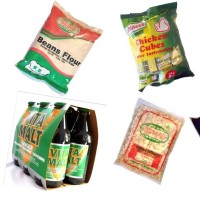A recent decision by the European Union (EU) to ban selected food commodities from Nigeria has been described by the Benue State Coordinator of the Nigerian Export Promotion Council (NEPC), Mr. Nanakaan Saave, as a bad omen for the country.

Mr Saave was speaking at a one day awareness and sensitisation workshop for farmers, agrochemical dealers and stakeholders on the safe and responsible use of pesticides, organised by the National Agency for Food and Drugs Administration and Control (NAFDAC) and the West Africa Agricultural Productivity Programme (WAAPP) in Makurdi, Benue State.
He said the ban on the products by the EU was as a result of the wrongful application of pesticides and other agrochemical substances on the commodities from Nigeria.
“We got an alert about four weeks ago from the European Union of their decision to ban the imports of beans, dried fish, melon and some other agricultural products from Nigeria due to the high residue of chemicals in the products,” he said, adding:
“Their decision was premised on the fact the high degree of chemicals in the affected farm products have made them unsafe for human consumption.
“On our part as a Council, we had earlier identified these issues and accordingly sounded an early warning to farmers to strictly abide by the best practices in the application of chemicals on our farm products and we will continue to educate and train our farmers accordingly.
“We are not lying low on the issue because it will certainly affect the volume of export from our country and the inflow of foreign exchange into Nigeria.”
In his speech, the Director General of NAFDAC, Dr. Paul Orhii, who was represented by the Deputy Director Agrochemicals, Sikiru Olowo, explained that the exporters of banned products side-tracked the agency and failed to subject their products to NAFDAC’s screening at the ports.
According to him: “The exporters of the affected products failed to pass through NAFDAC screening at the laboratories we have at the ports and which are also supported by the EU and other western countries.
“We will however continue to educate and train our farmers on the need to do the needful, so as to avoid further clampdown on farm products from our country.”










